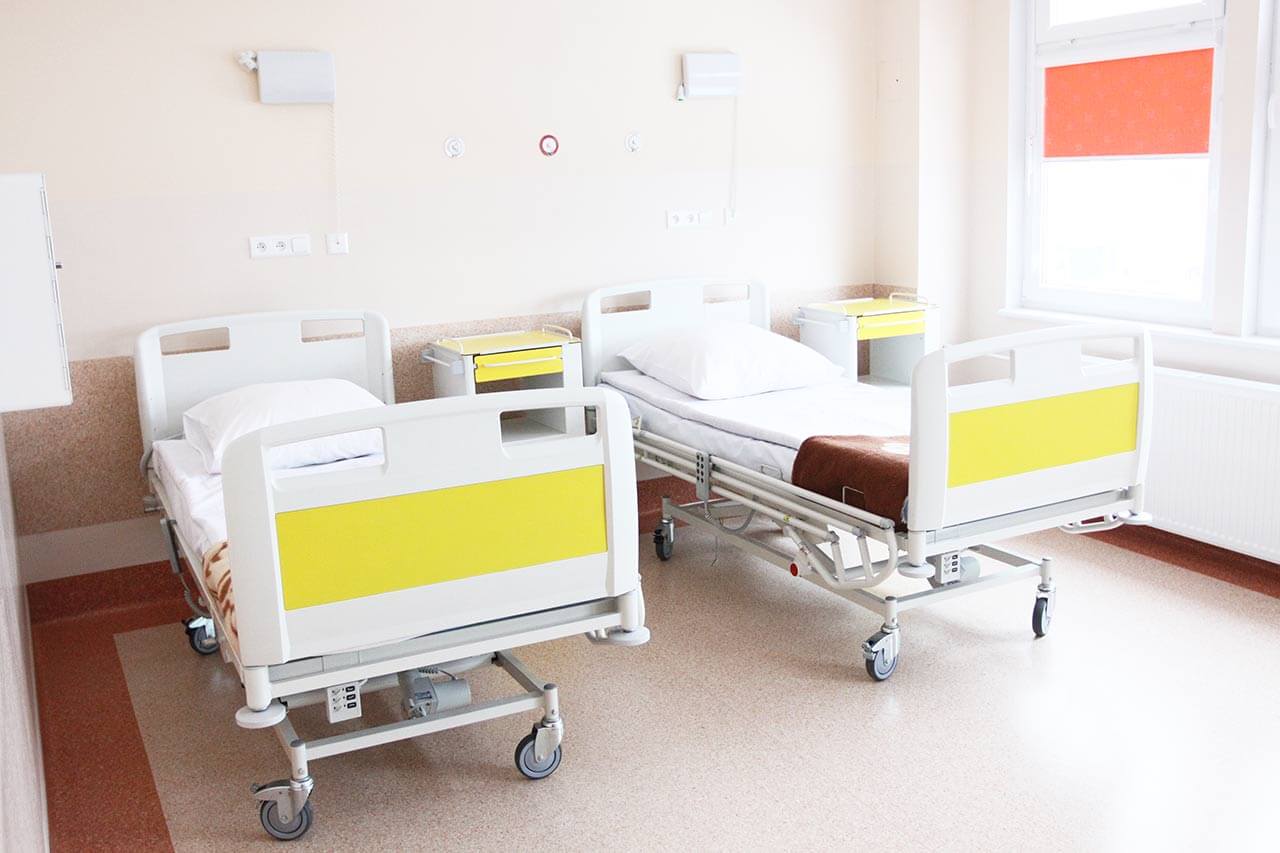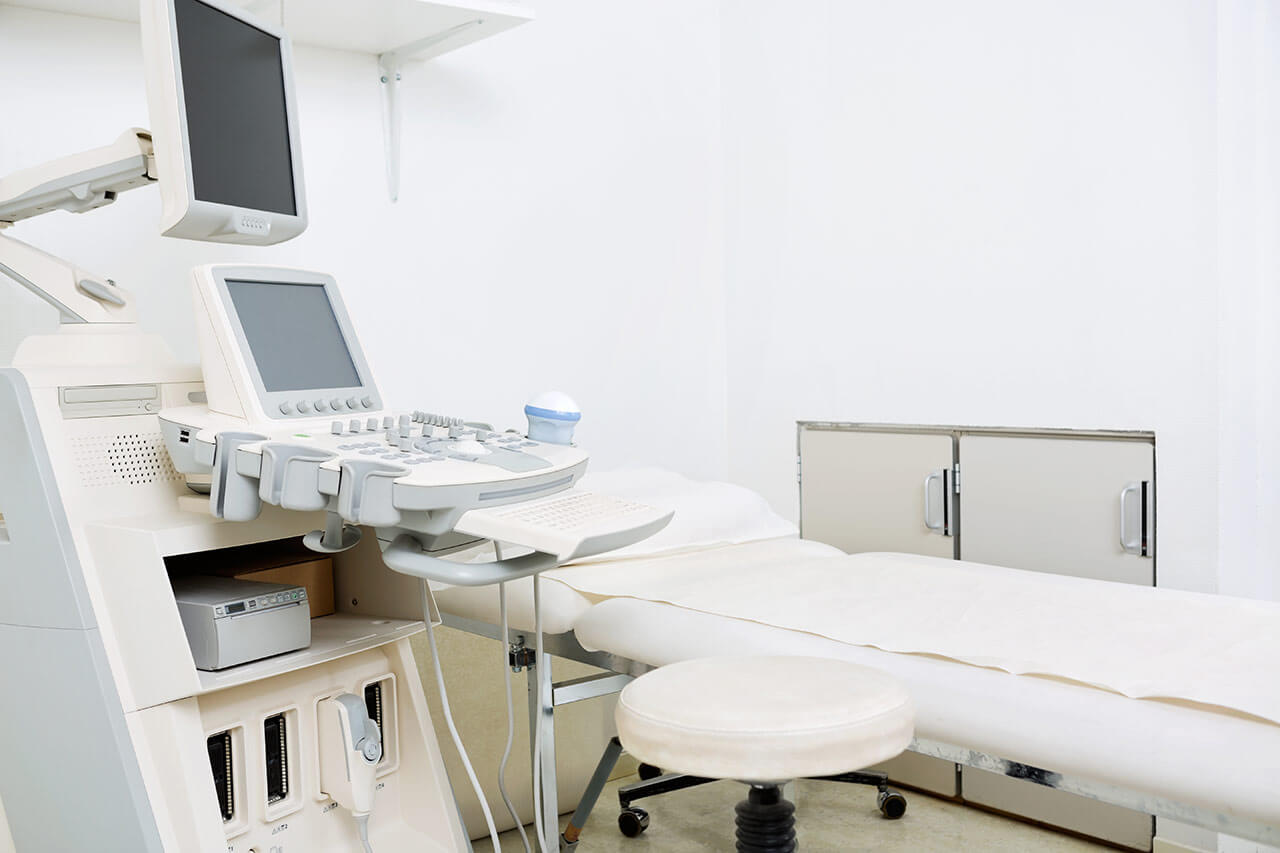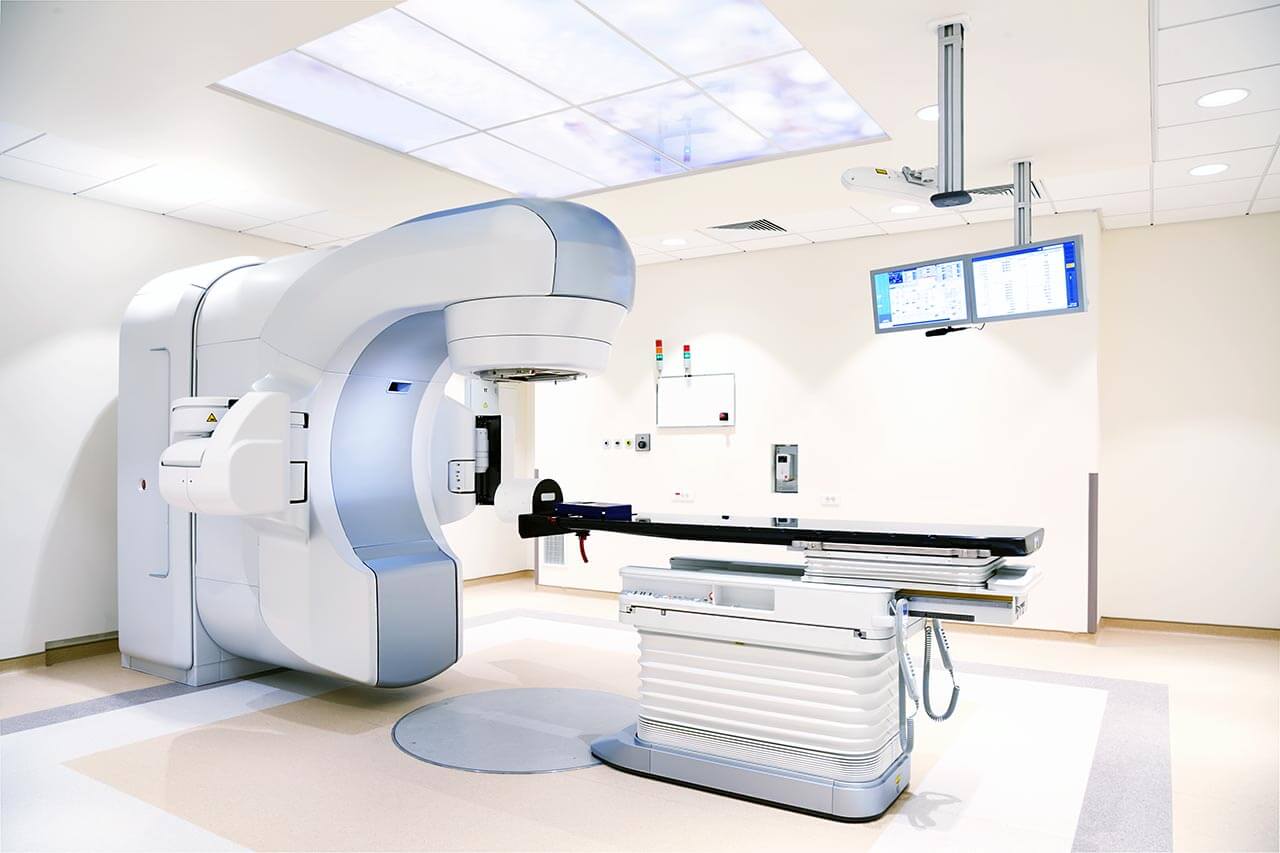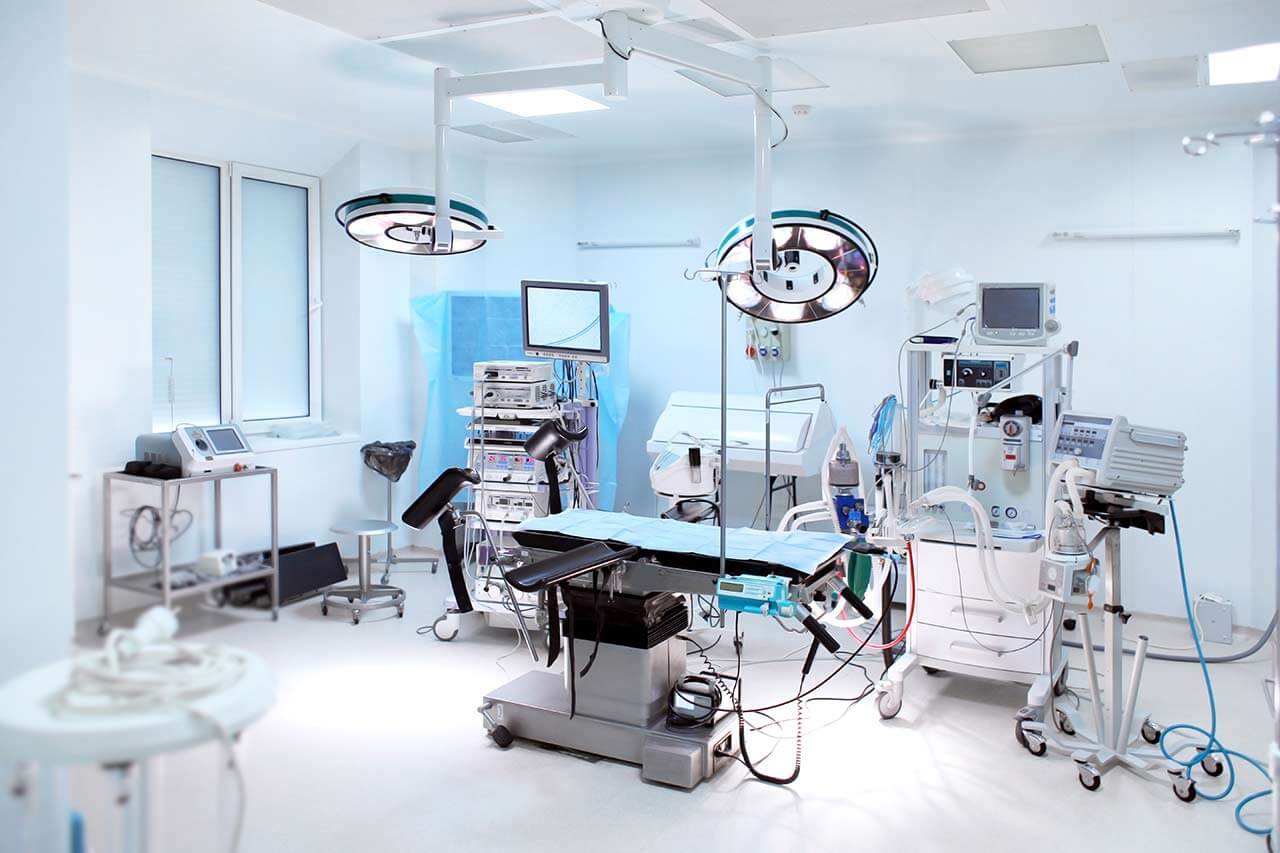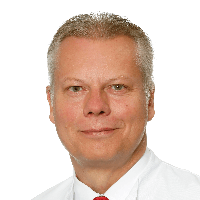
The program includes:
- Initial presentation in the clinic
- clinical history taking
- review of medical records
- physical examination
- laboratory tests:
- complete blood count
- general urine analysis
- biochemical analysis of blood
- TSH-basal, fT3, fT4
- tumor markers
- inflammation indicators
- indicators of blood coagulation
- ultrasound scan
- CT/MRI scan
- 1 course of chemotherapy
- nursing services
- consultation of related specialists
- treatment by head physician and leading experts
- explanation of individual treatment plan
How program is carried out
During the first visit, the doctor will conduct a clinical examination and go through the results of previous laboratory tests and instrumental examinations. After that, you will undergo an additional examination, including laboratory assessment of liver and kidney function, ultrasound scan. Based on the received results, the doctor will elaborate the chemotherapy regimen. If necessary, related medical specialists will be involved in the elaboration of a treatment regimen (tumor board).
Chemotherapy is carried out as the day hospital procedure, without mandatory admission to the hospital. After the placement of a venous catheter, you will stay in a comfortable ward. An infusion system will be connected to the catheter, through which the required drug or a drug combination will be administered. All drugs are administered by intravenous drip, slowly, so the total duration of the infusion can be up to several hours. All this time, doctors and nurses will monitor your health condition closely.
After the course of chemotherapy, you will stay under medical supervision in the ward for a few more hours. If your general condition is good, your doctor will allow you to leave the hospital. You will receive the medical report with detailed recommendations regarding further treatment. In the future, you will be able to have a distant consultation with your attending physician and schedule the next course of chemotherapy, if necessary.
Required documents
- Medical records
- MRI/CT scan (not older than 3 months)
- Biopsy results (if available)
Service
You may also book:
 BookingHealth Price from:
BookingHealth Price from:
About the department
The Department of Pediatric Oncology, Hematology and Clinical Immunology at the University Hospital Duesseldorf offers the full range of diagnostics and treatment of diseases of the hematopoietic system, oncopathology, bleeding disorders and diseases of the immuno-rheumatic profile in children of all age groups. The department has all the possibilities of hardware and laboratory diagnostics, adapted to the characteristics of the child's body. The treatment is provided using both traditional and innovative experimental methods approved by the professional societies. The Chief Physician of the department is Prof. Dr. med. Arndt Borkhardt.
The department’s priority is allogeneic stem cell transplantation, including haploidentical transplantation, in which parents become stem cell donors for a sick child (a closely related transplantation). In addition, the department is engaged in active research activities aimed at the development of innovative approaches to post-transplant treatment, such as dendritic cell vaccination (dendritic vaccine).
Another important focus of the department is the diagnostics and treatment of bone marrow diseases, for example, impaired formation and function of platelets, acute or chronic anemias. The children with congenital or acquired hemocoagulation disorders receive medical care within the specialized outpatient clinic. In addition, the doctors of the department specialize in the treatment of children and adolescents with congenital immunodeficiencies, rheumatic and autoimmune inflammatory diseases. In addition, the doctors have a special experience in the treatment and care of children with HIV infection and AIDS.
A separate specialization of the department is the diagnostics and therapy of solid tumors, including recurrent pathologies. The treatment plan is developed individually, taking into account the specific clinical indications. For children with terminal diseases, the competent experts of the department offer high-quality palliative care. If possible, such help is provided at home.
The main clinical focuses of the department include:
- Allogeneic and autologous stem cell transplantation for leukemia and solid tumors
- Immunotherapy with dendritic cell vaccination
- Treatment of solid tumors using regional deep hyperthermia
- Diagnostics and treatment of congenital and acquired bone marrow diseases
- Diagnostics and treatment of bleeding disorders
- Diagnostics and treatment of HIV infection and AIDS, as well as diseases of the immune system in children and adolescents
- Diagnostics and treatment of rheumatic and autoimmune inflammatory pathologies
- Palliative care
- Psychosocial care for young patients and their parents
- Other medical services
Curriculum vitae
Academic and Professional Career
- Since 2006, Professor of the Department of Pediatric Hematology, Oncology and Clinical Immunology, Heinrich Heine University Duesseldorf, as well as the Head of the department with the same name at the University Hospital Duesseldorf.
- 2005 - 2006 C4 Professor and W3 Professor in Pediatric Hematology, Oncology and General Pediatrics at the Universities of Halle, Essen, Duesseldorf and Jena.
- 2003 C3 Professor, Head of the Department of Pediatric Hematology and Oncology at the Dr. von Hauner Children's Hospital at Ludwig Maximilian University of Munich.
- 1999 Habilitation in Pediatrics. Subject: "Molecular genetics of chromosomes;
- aberrations in hemoblastosis in children". He was appointed an Assistant Professor at the Center for Pediatrics at the Justus Liebig University Giessen.
- 1998 Senior Physician of the Center for Pediatrics at the Justus Liebig University Giessen.
- 1991 - 1998 Training for a Medical Specialist in Pediatrics, Center for Pediatrics at the Justus Liebig University Giessen.
- 1990 - 1991 Assistant Physician, Medical Academy of Magdeburg.
- 1990 Doctorate, Magdeburg Medical Academy.
- 1984 - 1990 Study of Medicine at the Magdeburg Medical Academy.
Positions in the Scientific Societies and Committees (selected)
- Since 2009, Board Member of the European Society of Hematology (European Hematological Association - EHA).
Awards and Honorary Memberships (selected)
- Since 2012, Member of the National Academy of Sciences Leopoldina.
- 2005 Karus Medal (Leopoldina) and Karus Prize of Schweinfurt city.
- 2001 Award of the German Society of Hematology and Oncology.
- 1998 Adalbert Czerny Prize of the German Society of Pediatrics and Adolescent Medicine.
Key Research Focuses
- Leukemogenesis, bone marrow failure in children, bone marrow transplantation.
- The role of gene rearrangement in the development of leukemia.
- Diagnostics of chromosomal aberrations in leukemia.
- Primary immunodeficiencies.
- The function of microRNA in the immune system and their role in malignancy.
Photo of the doctor: (c) Universitätsklinikum Düsseldorf
About hospital
According to the authoritative Focus magazine, the University Hospital Duesseldorf ranks among the top Germany hospitals!
The hospital is an excellent example of a combination of high-quality health care, research and teaching activities. With more than 50,000 inpatients and about 300,000 outpatients every year, the hospital is one of the largest and most prestigious medical institutions in Germany and Europe.
Modern, safe and sparing diagnostic and therapeutic methods guarantee effective treatment of various diseases and their consequences. All therapeutic processes are based on an interdisciplinary approach, which provides comprehensive medical care and optimal treatment result. Obviously, one of the key roles in the successful clinical practice of the medical institution is played by a highly qualified medical personnel, which consists of the best world-class doctors. The hospital also has a special advantage due to the structured equipment with the innovative medical technologies.
The hospital presents almost all fields of modern medicine. Special attention should be given to such focuses as oncology and hematology, stem cell transplantation, neurosurgery and neurology, urology, obstetrics and gynecology, hepatology, kidney transplantation, vascular surgery, cardiac surgery, pediatric surgery, pediatric oncology, etc.
In addition to the outstanding quality of medical services, the hospital guarantees each patient an attentive care, friendly atmosphere, as well as sensitive and respectful attitude.
Photo: (с) depositphotos
Accommodation in hospital
Patients rooms
The patients of the University Hospital Duesseldorf live in comfortable single, double and triple rooms. The patient rooms are made in bright colors and modern design. The room furnishing includes an automatically adjustable bed, a bedside table, a wardrobe, a telephone, a multimedia device (TV, radio, Internet access), a table and chairs for receiving visitors. To use the phone and multimedia device, the patient should have a special chip card, which can be purchased at the reception. In the pediatric departments multimedia device can be used for free.
Meals and Menus
The patients of the hospital are offered a varied, tasty and healthy diet. Every day there are three menus to choose from for adults and four menus to choose from for children, while it is possible to develop an individual menu. When pre-ordering, the international patients may have dishes of various cuisines of the world, for example, Asian and African cuisine. If a patient needs a diet in accordance with the clinical indications, he will be provided with a special diet menu, including drinks.
Every day, the nurses inform the kitchen workers about the patient wishes using an electronic data processing system. Immediately before serving food, there are printed special cards, which indicate for which patient this or that dish is intended.
Also, the hospital houses a cafeteria with a rich selection of delicious, healthy dishes, snacks and drinks.
Further details
Standard rooms include:
Religion
Christian priests are available for the patients at any time. Representatives of other religions may be requested at any time.
Accompanying person
Your companion may stay with you in your room or at a hotel of your choice during the fixed program.
Hotel
You may stay at the hotel during the outpatient program. Our employees will support you for selecting the best option.
The hospital offers a full range of laboratory tests (general, hormonal, tests for infections, antibodies, tumor markers, etc.), genetic tests, various modifications of ultrasound scans, CT scans, MRI and PET / CT, angiography, myelography, biopsy and other examinations. Treatment with medications, endoscopic and robotic operations, stereotaxic interventions is carried out here, modern types of radiation therapy are also used. The hospital offers patients all the necessary therapeutic techniques.
- Dermatosurgery
- Skull base surgery
- Gastric bypass and bandage
- Removal of lung metastases
- Interventions on the spine
These are skin cancer (including melanoma), head and neck tumors, pathological changes in the chest (including funnel chest), obesity, liver diseases, HIV and other infectious diseases, varicose veins, aortic aneurysm, carotid artery stenosis, joint diseases and other pathologies.
- Dermatology
- Oncology
- Otorhinolaryngology
- Endocrinology and diabetology
- Orthopedics and traumatology
Over 800 highly qualified physicians work at the hospital.
